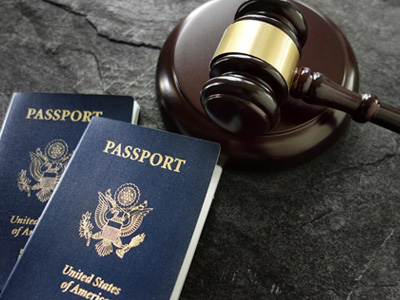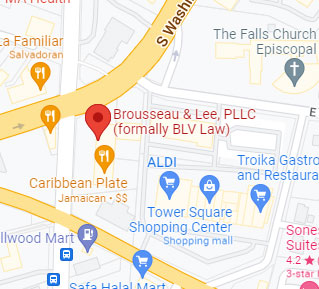 Who Is Eligible To File A Joint I-751 Petition?
Who Is Eligible To File A Joint I-751 Petition?
Joint I-751 petitions are for spouses who are petitioning together for the conditional status to be lifted off the non-citizen spouse.
However, just because this petition is meant for spouses, it does not mean that the spouses have to stay married after filing – or even that the marriage has to be on solid ground at the time that they file.
For example, a conditional resident spouse and the US citizen spouse who have a happy marriage and live together will file a joint I-751. At the same time, a couple who is considering divorce may also file a joint I-751 if their marriage has not been legally terminated and the US citizen spouse is willing to participate in the process.
However, if the marriage fails and the parties divorce while their I-751 petition is pending, the conditional resident must file a new I-751. In this new filing, they seek a waiver of the joint filing requirement in one of three waiver categories and, unfortunately, the new filing is going to require another fee.
It’s helpful to note: If you divorce after your joint I-751 petition has already been set for an interview, you may not be out of luck…
Some local USCIS offices will accept the filing of a new I-751 and waiver (along with the additional fee) at the time of your scheduled interview at the field office. Then, an official will conduct the interview based on the new waiver on the same date.
This is good because it speeds up the process as you do not have to wait for another interview to be scheduled pursuant to that waiver petition.
Filing A Joint I-751 With Your Children
The children of a conditional resident may be included in a joint I-751 filing. However, there are certain requirements for this…
- The child is single and under the age of 21.
- The child received lawful resident status concurrently with their conditional resident parent. (Concurrently, in this case, means on the same date or within the following 90 days.)
- The child is over the age of 21, but they were single and under the age of 21 at the time they immigrated with their conditional resident parent (or within the following 90 days).
- Each child included in a joint I-751 petition must pay a separate biometrics fee for fingerprints, etc.
A child who doesn’t meet the above requirements cannot file with their parents. Additionally, there is no provision for the inclusion of siblings on a single petition. Thus, whenever children cannot be included in the parent’s petition, each child must file their own I-751 petition and each petition includes a separate filing fee.
In these petitions, the basis for the child’s status is the marriage between their parent and the US citizen. So, a child who files their own I-751 must include documentation of the bona fides of the qualifying marriage between their parent and the petitioning spouse.
If a child is filing their own petition and their parent’s I-751 is pending, the child should include a copy of the receipt of the pending petition. And once the parent’s I-751 is approved, the child should include a copy of the approval notice.
Finally, a child whose parent never obtained lawful immigrant status through an I-751 may still file their own I-751 as long as they can prove their parents’ marriage was bona fide.
You Must File Your I-751 On Time
Many people don’t know that you need to file a joint I-751 within a specific time frame – regardless of whether or not you receive notification from the USCIS.
The truth is, you need to file the joint I-751 within the 90 days before your conditional green card expires. (You can find this expiration listed on your card.) No matter whether you are notified of the card’s expiration or not, it is still considered to be your responsibility to file timely.
Suppose you don’t file a joint petition on time. Then, the USCIS may enforce the provisions of the law, such as terminating the conditional resident status and initiating removal proceedings, though removal rarely happens when a joint petition is involved.
Late Filed Joint Petitions
The USCIS may accept a joint petition filed after the 90-day window if the conditional resident shows good cause.
Policy guidance indicates that the law provides broad discretion regarding what constitutes good cause and extenuating circumstances. The law also states that these circumstances may include but are not limited to:
- Hospitalization
- Long-term illness
- Death of a family member
- The recent birth of a child
- A family member on active duty within the US military
- And more…
Often the best explanation for a late filing will be the reason supplied by you. No matter the reason you missed the date, the government will want to hear why.
Suppose an untimely filed joint petition didn’t include a written explanation for failing to file the joint petition on time. In that case, the USCIS will deny the I-751 without making a request for evidence and will route the file for issuance of a Notice to Appear, which commences removal proceedings against an immigrant.
As such, anyone late filing joint petitions should include a specific request for acceptance of a late filing, either as a pleading or in letter form. The request should be supported by an affidavit from the conditional resident and, ideally, from their spouse. (This is easiest to do with the help of an experienced immigration attorney.)
In my experience, USCIS is very generous in accepting late-filed joint petitions, provided a specific request is made to accept the late filing for a good cause supported by affidavits or other documents, in addition to the clear proof of the continued bona fides of the marriage.
The Burden Of Proof For Those Who File A Joint I-751 On Time
Suppose you and your spouse file a joint I-751 on time and you both appear for the scheduled interview. In this case, the burden of proof is on the USCIS. This means that for them to deny your joint petition, they have to prove that the marriage is not bona fide by a “preponderance of the evidence”.
In this case, the “preponderance of evidence” means that the evidence must show a greater than 51% likelihood that the marriage is not legally valid; that the marriage has been terminated; or that the marriage was entered “only for the purpose of obtaining an immigration benefit.” (And remember the key word there is “only for the purpose of obtaining an immigration benefit.”)
With the guidance of a skilled attorney for Immigration Cases In Virginia, you can have the peace of mind that comes with knowing that we’ll make it look easy.
For more information on Filing A Joint I-751 Petition, an initial consultation is your next best step. Then, get the information and legal answers you seek by calling (703) 249-9055.

Call Now To Schedule A Consultation (703) 249-9055
